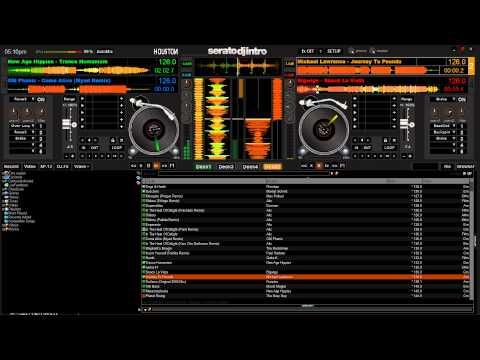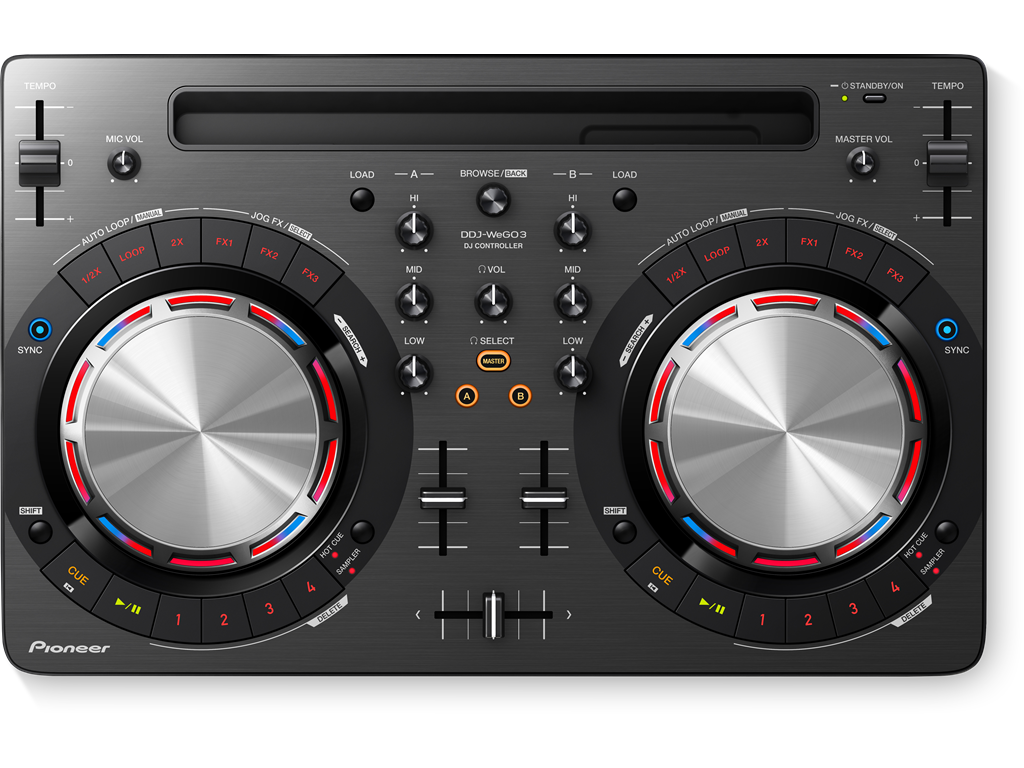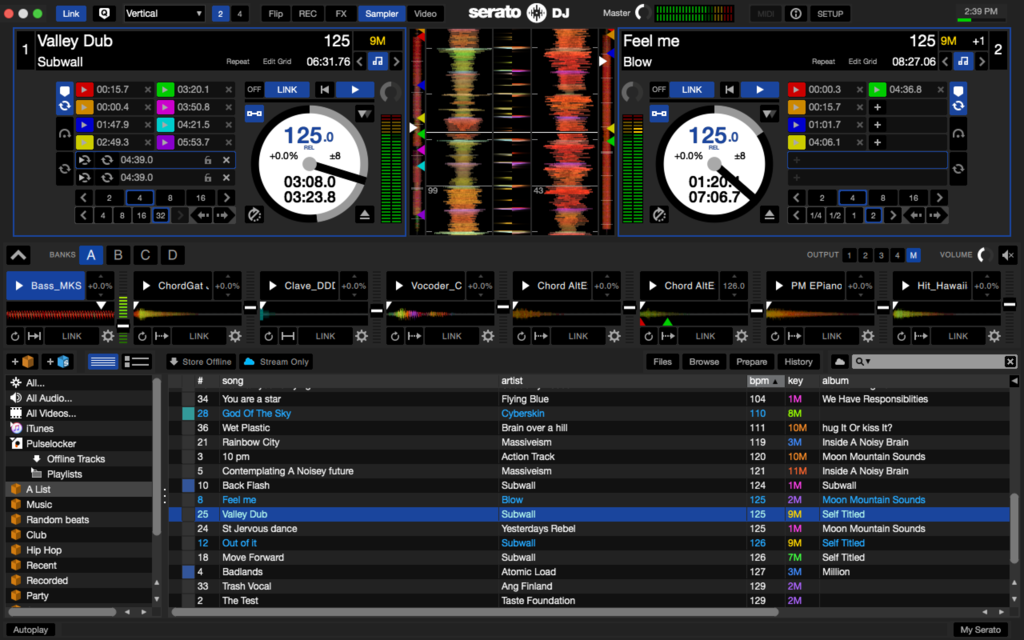

If you want to do more you can, but you can still just throw on tracks and mix between them.īiggest strength: It's customizable, but not so customizable you'll get lost. What's unique about it: It's traditional DJing with some added flexibility. You also have the ability to route the tracks through four "effects units" that offer flexible individual effects or combined effects for added complexity. You can have up to 4 decks in four different flavors: a traditional single track deck, one that allows you to play songs that have their parts split out (good for remixing or mashing up, but these aren't super common), one that lets you layer samples in an Ableton-esque grid, and one that lets you use outside audio. You'll also find that the controllers that work well for it are completely different from the ones that work well for Serato and Traktor, so that's an extra cost. This makes sense since it can do so much more. It costs substantially more then Serato or Traktor after Intro. If you're prone to distraction or perfectionism you might find yourself endlessly tweaking and customizing your project instead of actually producing. More complexity means more time to get started and figure out how it works. (Most people who scratch with Ableton solve this by running Serator or Traktor separately and beatmatching/syncing with Ableton.) You could probably figure out ways to beatmatch and scratch in it but I wouldn't want to. Pretty much incompatible with a traditional DJing experience.

This video is a over decade old but it's the first that comes to mind. I honestly can't really express in words how flexible it is but I've seen people do some awesome stuff with it. You also can have as many tracks as your computer can handle, so you can do tons of complex layering.Īstounding flexibility. Then when you're playing live everything will stay in sync. You go through and mark beats to help keep the clips from drifting out of time. You can (have to) pre-beatmatch all your clips in order for them to play in time. With plugins, Max 4 Live, and Ableton Link it plays nicely with other tools and is immensely flexible. If you've ever thought about producing your own music it's also a good way to get your foot in the door there.
#SERATO VS TRAKTOR 2018 FULL#
You can do everything from a traditional "two decks and a mixer" style setup all the way up to super complex sets with dozens or hundreds of "decks" layering samples, loops, full tracks, and original instrumentation all at once.
#SERATO VS TRAKTOR 2018 SOFTWARE#
What's unique about it: As others mentioned, it's music production software first, but that's what makes it so powerful. I've used it the most so I'll write the most about it. I think this is how they prevent piracy.Ībleton is an extremely nontraditional DJ experience and debatably the most flexible of the three. They're sold as Serato compatible and usually include a Lite version you can get started with, but this also means if you picked up a controller that isn't approved by Serato then you can't use it without also buying an authorized one. This deserves its own bullet: You need a controller specifically authorized by Serato. Every controller you buy for it comes pre-mapped so you don't have to spend any time customizing it.īiggest weaknesses: If you want to go outside the lanes of traditional DJing it might be a little constraining. It's meant for traditional DJs who are tired of carrying vinyl everywhere.īiggest strengths: It's simple and predictable.

IMO Serato stands out as a very straightforward, very simple experience. Or, more positively, consistency over complexity. What's unique about it: Arguably its lack of uniqueness. It's focused around a standard set of 2 or 4 decks with optional sampler and effects (depending on your controller and license). Serato is the most "traditional" DJ experience of the three. Obviously my experience is a little disproportionate, but these are my impressions from my time spent with each tool.

#SERATO VS TRAKTOR 2018 PRO#
Background: I have Ableton 10 Suite (10+ years experience), Traktor Pro (6ish months, but more playtime than Serato), and Serato DJ Pro (about a year).


 0 kommentar(er)
0 kommentar(er)
